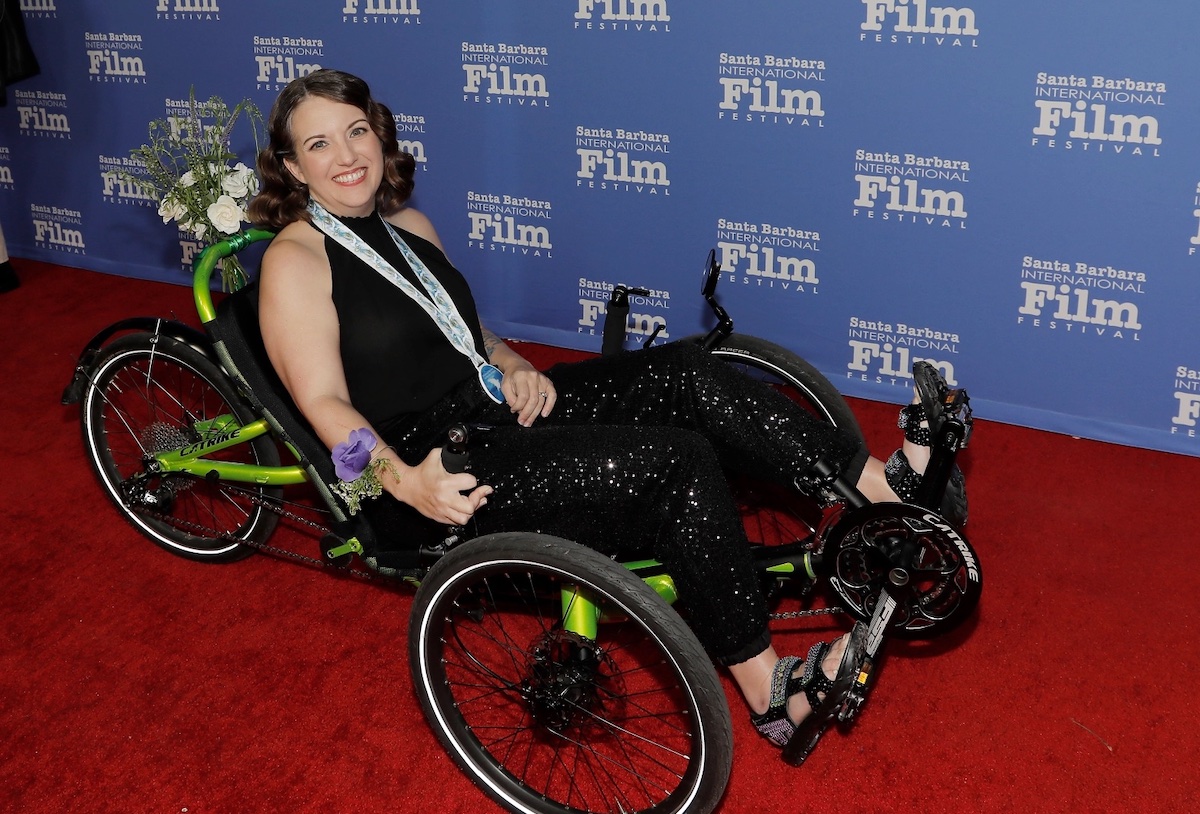‘Go On, Be Brave’ Documentary Inspires at Santa Barbara International Film Festival
Film Focuses on Andrea Lytle Peet’s Quest to be the First Person with ALS to Finish 50 Marathons in 50 States

Film Focuses on Andrea Lytle Peet’s Quest to be the First Person with ALS to Finish 50 Marathons in 50 States

It’s hard to describe what a moving experience it was to watch the world premiere of the documentary Go On, Be Brave, which debuted at the Santa Barbara International Film Festival. It’s the incredible story of Andrea Lytle Peet, who was diagnosed with ALS at age 33. Significantly younger than most people who have this horrible disease (according to National Institutes of Health, symptoms of this deadly disease most commonly develop between the ages of 55 and 75), when she got her diagnosis in 2014 Andrea had been living a normal life, working as an urban planner, training as a triathlete, and hoping to start a family with her amazing husband, David.
Rather than simply “put her affairs in order” as she was instructed (the average life expectancy of someone with ALS is 2-5 years), Andrea got a recumbent tricycle to ride and decided to do another race, and another, and another, which ultimately led to her quest to become the first person with ALS to complete a marathon in all 50 US states.
The film follows that journey and we get to know Andrea, whose feisty spirit, determination, and good humor is incredibly endearing; as well as her loving husband David, her family, her friends, and her trainer — many of the “Team Drea” folks were enthusiastically cheering her on in the audience, which made the experience of watching Go On, Be Brave even more moving.

I had the opportunity to speak with Andrea after the screening and ask her what it was like to be part of the documentary. “We definitely didn’t know what we were doing, but we couldn’t have trusted our story to anyone more dedicated,” she said of the filmmakers, Brian Beckman and Miriam (MJ) McSpadden of Fly Squirrel Films.
A key part of the movie is Andrea’s failed quest to be part of the prestigious Boston Marathon, which has very strict and complicated rules and doesn’t allow tricycles like hers. When I asked about the most memorable moment in the film for her, she pointed to a moment when a friend of hers gives her his treasured Boston Marathon medal after she completes her own version of that challenge in Massachusetts.
There are also some very moving segments where Andrea returns to the same artist annually to get a new tattoo of a swallow. An ALS community tradition begun by Tim LaFollette in 2009, the film explains, is getting a swallow tattoo for each year of living with ALS, with the swallow as a symbol of hope. Her neurologist (who was Tim’s doctor as well) also has a tattoo of a swallow on his hand, and the symbol appears in other ways throughout the movie, including on one of Andrea’s many brightly colored pairs of leggings that she trains and competes in.
“Being part of this whole thing has been overwhelming,” said Andrea. “I cry, truly my life’s journey and goal is to raise awareness and money for ALS.”
With that in mind, Andrea and David created the Team Drea Foundation, which has raised more than $1 million for ALS research. In addition, during COVID she spent a lot of her time writing, and in the fall her memoir, with co-author Meredith Atwood, Hope Fights Back, will be released by Pegasus Books.
For more information on the film, visit https://goonbebravefilm.com/ and for more information about donating to the Team Drea Foundation, visit https://www.teamdrea.org/.
Please note this login is to submit events or press releases. Use this page here to login for your Independent subscription
Not a member? Sign up here.
You must be logged in to post a comment.